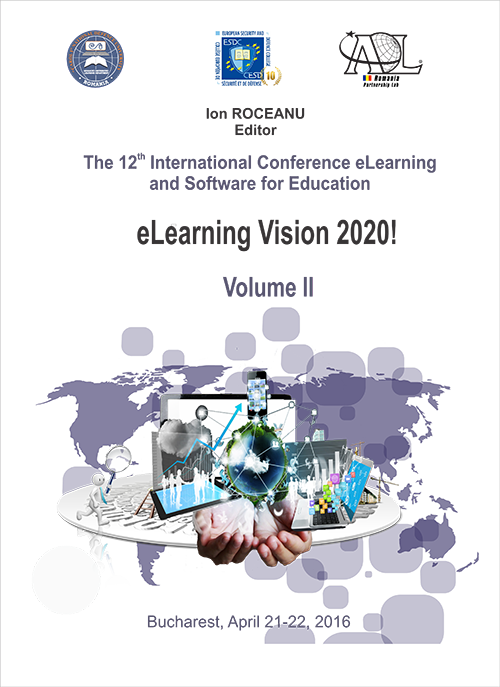SYMMETRICAL AND ASYMMETRICAL TRAITS OF NEW LEARNING ENVIRONMENTS
SYMMETRICAL AND ASYMMETRICAL TRAITS OF NEW LEARNING ENVIRONMENTS
Author(s): Ciprian Pripoae-SerbănescuSubject(s): Environmental interactions, Sociology of Education
Published by: Carol I National Defence University Publishing House
Keywords: implicit learning; symmetry/asymmetry; unconscious; knowledge;
Summary/Abstract: Learning has always been governed by brain neurophysiology and psychology principles. This articles aims to address the nonlinear dynamic between explicit (learn about) to implicit dimension of learning (learn to be) in the new learning environments. The author explores the link between the symmetrical and nonsymmetrical traits of the essential variables presented in the new learning environments and their impact on the self agency as a key factor in determining both the depth of knowledge acquired and the subjective feeling of ownership and satisfaction during learning process. Although contemporary main stream of learning psychology research remains dominated by a conscious-centric model of the higher mental processes, neuroscience discoveries have brought new insights on the influence of the unconscious dynamics over the rational thinking. Different authors had presented the mental agency using three characteristics to describe individuals as "agents of their own thinking"; self-awareness, self-determination, and self-direction. But attribution beliefs are deeply embedded within cultural and familial contexts and are the mental unconscious representations of early transactional relations of the individual with physical and social environment. Drawing on Matte Blanco theory we analyze the key variables of formal and nonformal learning environments (physical arrangements, communication means, instructional material, types of interaction, learning objectives) in terms of symmetrical and asymmetrical traits that in an optimally balanced mix can establish the emergence of self agency. As we previously mentioned, this is not only the key factor in making an epistemic step from knowledge to knowing but also a factor positively correlated with mindfulness.
Journal: Conference proceedings of »eLearning and Software for Education« (eLSE)
- Issue Year: 12/2016
- Issue No: 02
- Page Range: 200-205
- Page Count: 6
- Language: English

